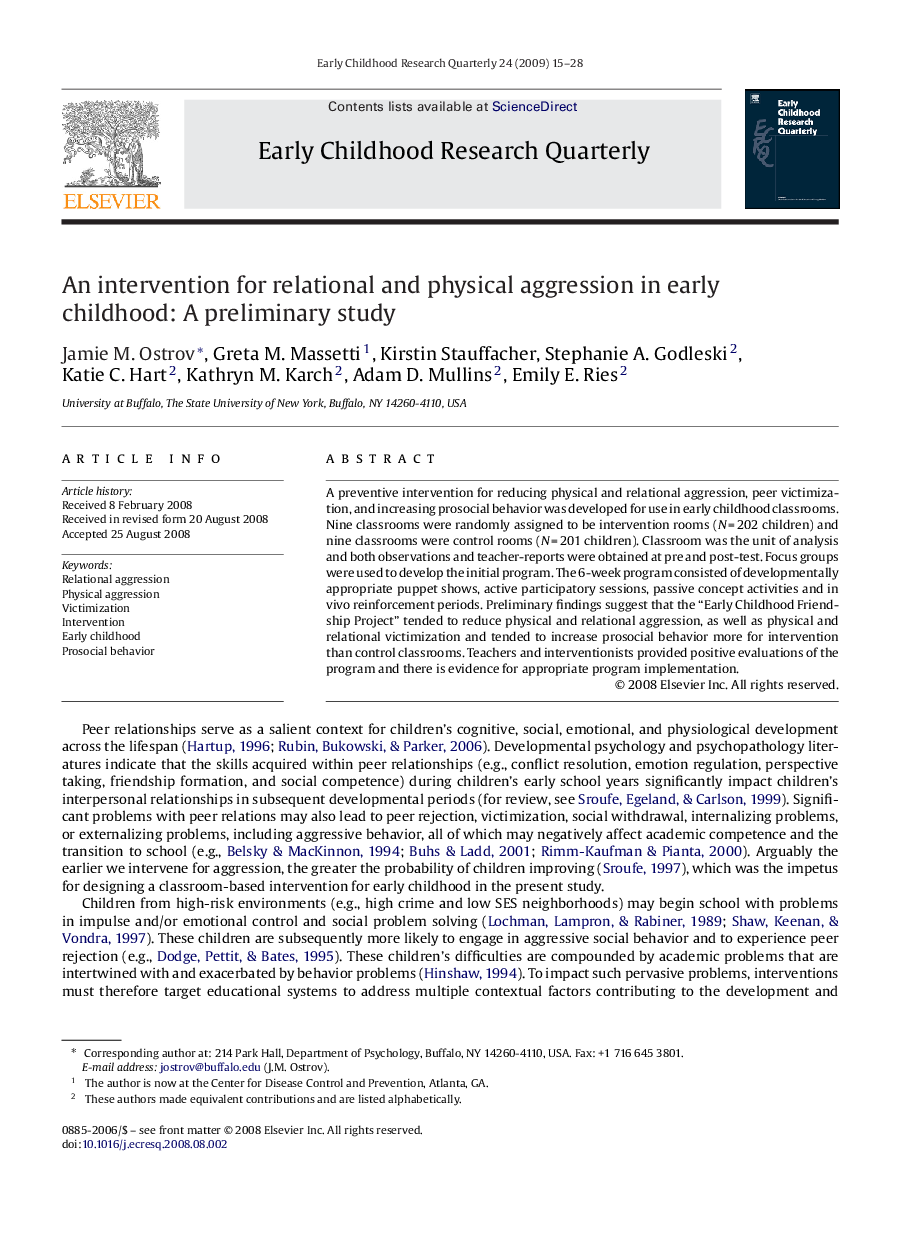| Article ID | Journal | Published Year | Pages | File Type |
|---|---|---|---|---|
| 354034 | Early Childhood Research Quarterly | 2009 | 14 Pages |
A preventive intervention for reducing physical and relational aggression, peer victimization, and increasing prosocial behavior was developed for use in early childhood classrooms. Nine classrooms were randomly assigned to be intervention rooms (N = 202 children) and nine classrooms were control rooms (N = 201 children). Classroom was the unit of analysis and both observations and teacher-reports were obtained at pre and post-test. Focus groups were used to develop the initial program. The 6-week program consisted of developmentally appropriate puppet shows, active participatory sessions, passive concept activities and in vivo reinforcement periods. Preliminary findings suggest that the “Early Childhood Friendship Project” tended to reduce physical and relational aggression, as well as physical and relational victimization and tended to increase prosocial behavior more for intervention than control classrooms. Teachers and interventionists provided positive evaluations of the program and there is evidence for appropriate program implementation.
